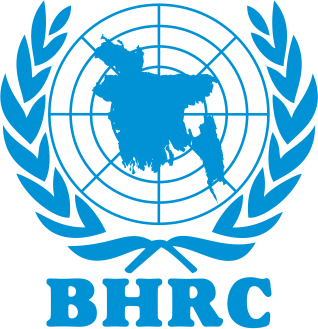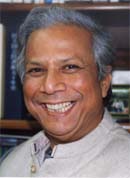

|
EDITOR
|
Editorial
‘Fortnightly’
পাক্ষিক |
|
|
BHRC Human Rights
Report on August 2016
Total 228 persons
killed in August 2016
Human Rights
Report:
The documentation section of Bangladesh Human Rights
Commission (BHRC) furnished this human rights survey
report on the basis of daily newspapers and
information received from its district, subdistrict
and municipal branches. As per survey it appears
that 228 peoples were killed in August, 2016 in all
over the country. It proves that the law and order
situation is not satisfactory. Bangladesh Human
Rights Commissions extremely anxious about this
situation. In the month of August, 2016 average 7.35
people were killed in each day.
The Law enforcing agencies and related Govt.
departments should be more responsible so that
percentage of killing may be brought down to zero
level. To institutionalize the democracy and to
build human rights based society the rule of law and
order must be established everywhere. Through
enforcing rule of law only such violation against
human rights can be minimized. Report Published
assistance by International Human Rights Commission-IHRC.
It appears from documentation division of BHRC:
Total 228 killed August, 2016
Political killing 7, Killing for dowry 7, killing by
family violence 34, Killed due to social discrepancy
40, Killed by Law enforcing authority 18, Killed due
to doctor negligence 5, Assassination 7, Mysterious
death 96, Killed due to BSF 4, Women & Chilled
killed due to rape 1, Kill due to abduction 9
Killed by several accidents:
Killed by road accident 156, Suicide 17
Besides victims of torture:
Rape 45, Torture for Dowry 17, Sexual Harassment 13.
SC sends letter to law ministry to relocate ICT
Human Rights Report:
The Supreme Court authorities have sent a letter
to the law ministry asking it to relocate the
International Crimes Tribunal from its premises, the
personal secretary to the chief justice said today.
Without elaborating, Anisur Rahman told The Daily
Star today that the letter was sent to the ministry
on Sunday following accommodation problem of the SC
building.
However, Law Secretary ASSM Jahirul Haque Dulal said
our correspondent that his office is yet to receive
any letter from SC in this regard.
The government established the ICT at the Old High
Court building in March 2010 for trying the war
criminals..
Yunus Carries
Olympic Torch at Rio 2016

Human Rights Report:
Nobel Laureate Professor Muhammad Yunus, wearing
elegant Olympic athlete uniform carried the Olympic
torch today on the final leg of the Olympic torch
relay in Rio de Janeiro in the build up to the
opening of the 2016 Games. He received the flame
from senior IOC representative James Tompkins in a
brief ceremony of transferring the flame from his
torch and walked 200 metres with the flame to loud
applause and cheers of the flood of crowds on the
streets.
During the walk with the flame Professor Yunus held
up the flame in one hand and held up three fingers
of the other hand to symbolize the three zeroes
urging the global audience to work for. These three
zeros stand for three social and environmental goals
of "Zero Poverty, Zero Unemployment, and Zero Net
Carbon Emissions". He has been advocating to add a
social dimension to all IOC programs . This was the
core message of his address to IOC Annual General
Meeting yesterday.
All along the walk crowds of local children, youth.
men and women surrounded him taking videos and
pictures to capture this historical event in their
neighbourhood. Many in the crowd recognised him as
the father of microcredit which is popular in
Brazil. The media truck overflowing with TV and
print media cameras from all around the world drove
slowly in front of him and the processsion covering
the event. At the end of the walk he passed on the
flame to Ms Michelle Jean, former Governor General
of Canada and the present Secretary General of the
Union of Francophone Countries. There was a carnival
like atmosphere with music and excitement all
around. The torch relay was broadcast live by
www.globosporte.com
In the evening he was invited as a guest of honor at
dinner by the IOC President Mr Thomas Bach which was
attended by 450 leaders of sports world and
distinguished guests like UN Secretary General Ban
ki Moon, French President Francois Hollande, HRH
Princess Anne, HM King of Netherlands, HRH Crown
Prince of Denmark and high officials of the IOC.
Professor Yunus was given a seat at the head table
along with the distinguished guests and their
spouses.
Earlier in the day he was invited as keynote speaker
at conference of the CEOs of Brazilian businesses
hosted by the Inter American Development Bank and
inaugurated by the Mayor of Rio. Professor Yunus
encouraged businesses to get involved in social
businesses to tackle some of the pressing issues of
society including unemployment and wealth
concentration.
Professor Yunus will attend the Olympic events, as
the distinguished guest of IOC, for the next few
days including the grand opening ceremony tomorrow
which will be televised globally.
He was our
troubadour
Syed Badrul Ahsan
In this sad month of August, as the
rains of Sravana pelt us with intimations of
tragedy, we know it is time to remember the
Liberator. He was our Bangabandhu - Friend of
Bengal. It is time to celebrate him, that moment in
life when past glory and old causes re-ignite the
collective spirit of the Bengali nation.
It is the courage of Bangabandhu Sheikh Mujibur
Rahman you miss as you go through life. And yet it
is something more, something of values that you
associate with any remembrance of him. He embodied
some of the finest traditions that self-respecting
people anywhere have throughout the course of
history upheld in their lives. And among those
values is the refusal to compromise, to undermine
yourself through a convenient jettisoning of the
ideals that you have always held dear. Even as the
round table conference went on in Rawalpindi in
1969, President Ayub Khan suggested to Mujib that he
take charge as Pakistan's prime minister. The
Bengali leader spurned the offer. It was a natural
gesture on the part of a man who had defied the
winds and the trends of the times to come forth with
the Six Points in 1966. It was Bengal that mattered
to him. Nothing else did, or would.
It was all in character for Bangabandhu. He never
flinched from doing or saying anything he thought
was right, or made good sense. In December 1969, as
Bengalis remembered Huseyn Shaheed Suhrawardy on his
death anniversary, Sheikh Mujibur Rahman let them
and by extension the world outside their own
parameters know that thenceforth East Pakistan would
be known as Bangladesh. One hardly needed proof that
Mujib had come a long way. Back in 1957, he had
caused not a little distress to Suhrawardy, then
Pakistan's prime minister, by asking him bluntly if
Bengalis could not opt out of the state Jinnah had
cobbled into shape. Suhrawardy reprimanded him for
entertaining such thoughts. Mujib then simply bided
his time. When it came, he knew the task he needed
to perform. His dedication to the causes he espoused
was complete and without ambiguity.
Ticket to ride
Human Rights
Report:
Bengal was not far behind Europe and America, in
the adoption of the railway technology which had
revolutionized the world transportation
system,thanks to the colonial rule of the East India
Company. Railway appeared first in Britain in 1825.
It was introduced to the USA in 1833, to Germany in
1835, Italy in 1839, France in 1844, Spain in 1848,
Bengal in 1854 and Sweden in 1856. Imagine when we
were beating Sweden!
Sadly, at various points during the 160 years that
have since followed, the decline of the railways in
this part of the world in particular, has at times
even outpaced the downward spiral of its economies
(in relation to Sweden), although nations tasted
independence, struggled with statehood, and
discovered themselves within international families.
Today there are new headwinds in the global regime
that the states of South Asia were born into. As
such they call for astute reassessment of priorities
and mindsets, of alertness to opportunities. While
there is a backlash forming in the industrialised
West, over the perceived pernicious effects of the
pervasive, accelerated process of globalisation that
the world entered into in the post-World War II era
(at its essence, what else could be the message
conveyed by 'Brexit?'), we will do well to note that
till now, it remains just that: a backlash, nothing
more. There is no need as yet to ape some of the
fringe elements in the West in battening down the
hatches against globalisation and the shared fruits
of humanity. Although a Donald Trump presidency
might change things.
What cannot stand:
Extremism In Islam
Human Rights Report:
The most notorious Islamic militants are ordinarily
grouped into two heads: Taliban and Al-Qaeda
network. However there is another group that has
emerged- within Salafism- that advocates restoring a
Muslim empire across the Middle East and Spain. It
is ISIS. Salafis have sought inroads in Libya Iraq,
Syria. Algeria, Lebanon and Jordan. In recent times
ISIS has emerged as the one which captured the
territory in Iraq and Syria. Even its influence has
impacted on South Asia including Bangladesh. For
example the 1st July terrorist attack in a Gulshan
restaurant.
Many people are confused about the objectives of Al-Quaeda
and Taliban organisations. Some think the objectives
are similar and some believe they are different. On
a deeper analysis, it has been found that Talibans
in Afghanistan and Pakistan have different
objectives than those of Al-Qaeda.
Al-Qaeda promotes holy war to translate its
conservative religious globally, the objectives of
Talibans are confined to change the regimes in
Afghanistan and Pakistan and in that sense they are
local. Two embattled governments in Afghanistan and
Pakistan confront the Talebans without success and
the US came to Afghanistan in 2001 to remove the
Taliban government which supported the Al-Qaeda
leader Osama Bin Laden living in Afghanistan.
The US fears that if Afghan Talibans regain control
over Afghanistan, it may invite Al-Qaeda back in the
country. Understanding the differences between the
two Talibans is also necessary because when Pakistan
army launched an offensive against Talibans in
Pakistan, many in the US administration thought
incorrectly that the assault was against the Afghan
Talibans, against whom the NATO forces including US
military are fighting.
Although both groups threaten American interests,
the Afghan Taliban is the primary enemy of the US.
On 25th December, the Taliban released a video
showing an American soldier who was captured five
months ago in Afghanistan. Private Bowe Bergdahl, an
infantryman, was taken by the Taliban n Paktika
Province on June 30th. The Taliban demands for a
number of prisoners to be exchanged for Bergdahl.
The recent attacks of the Pakistani Talibans on
military and police establishments have strained
relations with Afghan Talibans because their hiding
place in the Tribal areas in Pakistan is under
attack from Pakistan army. They do not approve the
way Pakistan Talibans are fighting with Pakistan
government and therefore causing a lot of problems
for Afghan Talibans.
The Afghan and Pakistan Talibans are present in the
tribal areas on both sides of the Durand Line and
the tribal areas have always been autonomous.
Anxious to safeguard this autonomy, the tribes
resist control by the central government, whether in
Islamabad or Kabul.
.
.











